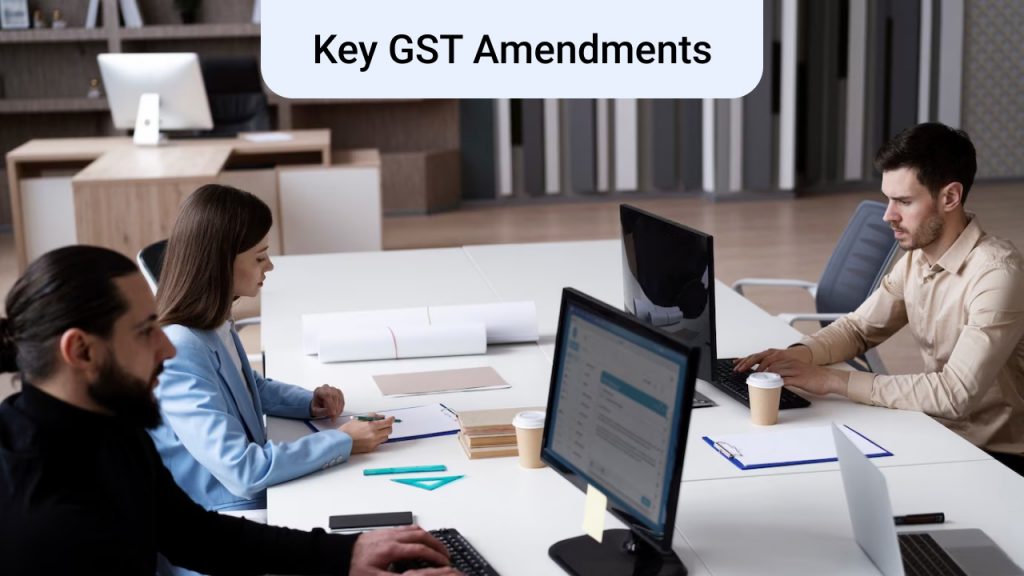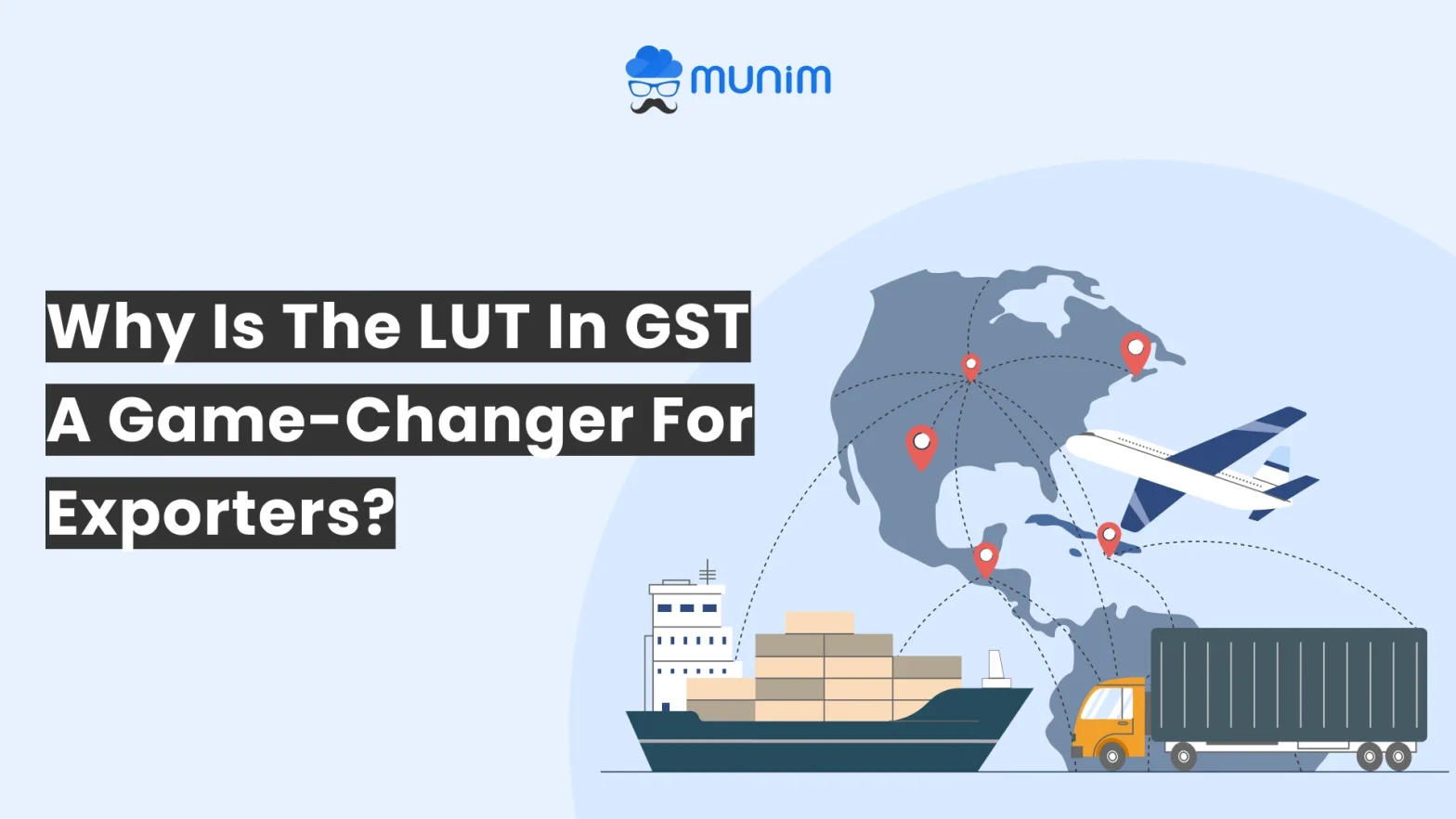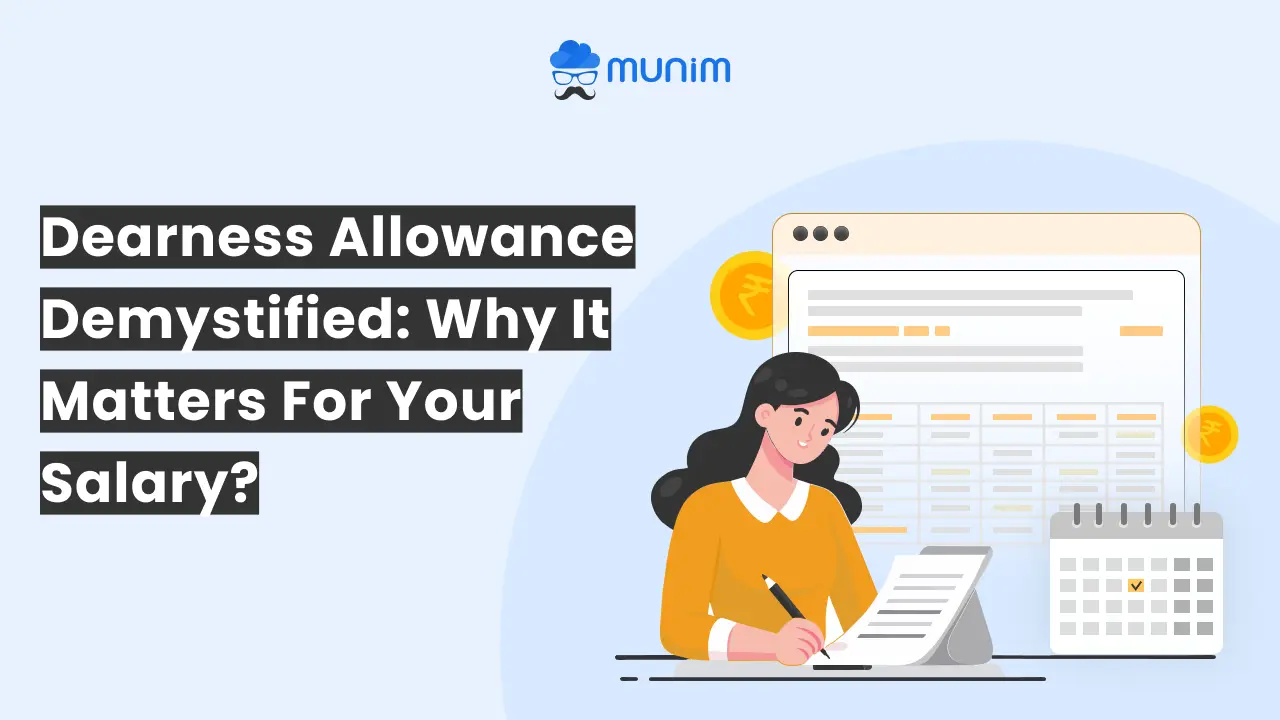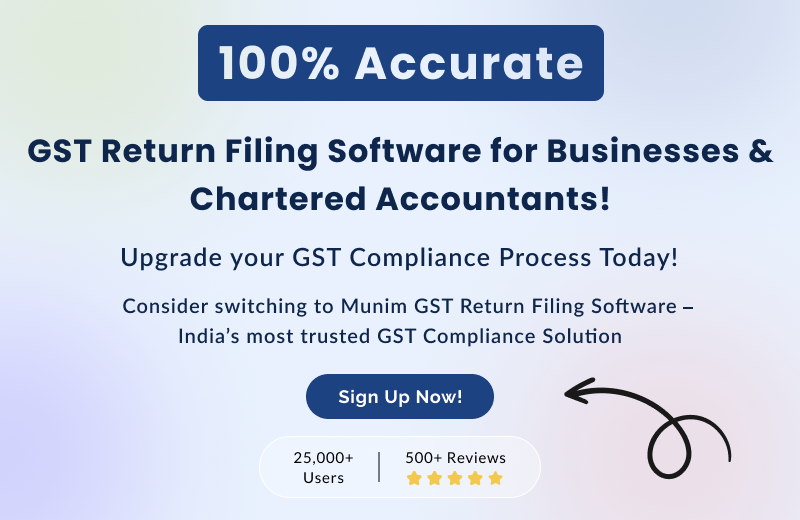Important GST Amendments Proposed In Union Budget 2025

On February 1, 2025, the Union budget for the financial year 2025–2026 was announced. Along with the same, amendments to the Goods and Service Tax regime were introduced to further simplify the taxation process and remove the roadblocks hindering the growth of India Inc. This blog will go over the specifics of the GST amendments announced in the Union Budget 2025.
Key GST Amendments

Following are details of the important amendments to the GST regime proposed in the Union Budget 2025:
Entities Exempted From GST Registration
Following are the entities that are exempted from GST registration in spite of anything mentioned to the contrary in sub-section (1) of section 22 or section 24:
- An agriculturalist supplies the goods produced out of the cultivation of land.
- Any entities mentioned in the CGST act or the Integrated Goods and Services Tax Act, 2017
Decriminalization Of Some Offenses
- It is recommended that the monetary threshold for criminal offenses should be increased from one crore to two crores for proceeding with legal prosecution. It is noted that this rule does not apply to the issuance of invoices without supplying goods or services.
- The prosecution due to the generation of fake invoices and fraudulent bills will continue as it is.
Non-taxable Online Recipient & OIDAR
The definition of Non-taxable online recipient’ & ‘OIDAR’ has been amended as follows:
Section 2(16) of the IGST Act is being amended to bring OIDAR services under taxability offered by any person situated in non-taxable territory to an unregistered person availing of the said services and located in the taxable territory. This applies to the condition that receipt of OIDAR services for the purpose except for commerce, industry, or any other business or profession.
Sharing Information With Consent
After obtaining the supplier’s consent and the recipient’s specific data, they will be shared with other systems as notified by the government.
It intends to share the information provided at the time of registration (GSTR-1, GSTR-3B, or annual returns, or when preparing e-invoices and e-way bills.
Rarely, specific e-invoices and e-way bills are shared without the consent of both parties.
Composition Scheme and E-commerce Operators
The composition scheme is applicable to those taxpayers involved in the dealing of goods through an e-commerce operator (who collects TDS). If someone provides service through the medium of e-commerce they shall still not be able to opt for the composition scheme.
Sections 10 and 122 of the CGST Act are amended to facilitate the composition of taxpayers and unregistered suppliers to allow intra-state transport of goods from the medium of e-commerce operators (ECOs) which is subjected to a few restrictions.
Input Tax Credit On Corporate Social Responsibility
Input Tax Credit (ITC) cannot be claimed for goods or services or both by a taxpayer which is intended to be used for activities under corporate social responsibility (CSR) as defined in section 135 of the Companies Act of 2013, as per the amendment to section 17(5) of the CGST Act of 2017.
- Section 17(5) of the CGST Act, 2017 is about blocking credits on which ITC cannot be claimed
- A new clause (fa) has been added under section 17(5) stating that expenditure incurred in relation to the taxpayer’s obligations under the framework of CSR is mentioned in the Companies Act, 2013.
- Hence, GST paid on the expenditures incurred intended towards CSR will become a cost to the company.
Schedule III Transactions Are To Be Included In Exempt Supply
Before getting clearance for own consumption, the supply of goods in store to any individual is considered a non-taxable supply. By including the value of such transactions in the value of exempted goods the amendment intends to prevent receiving ITC on those supplies. The following are the specifics of the proposal:
- Schedule III transactions to be included in the exempt supply
- Sale of land and, sale of a building (a) Supply of goods in store to any entity before clearance for home consumption
Penalty On E-Commerce Operators
A new sub-section (1B) in section 122 of the CGST Act is proposed with the intent to open penalty provisions to e-commerce operators (ECO) in cases where they flout provisions relating to supplies of goods or services via their portal by unregistered persons or composition taxpayers.
In order to prevent the same, ECOs are guided to collect data accurately and track transactions taking place on their platform to prevent legal action against them.
Addition of a new clause in Sec. 122:
(1B) Any electronic commerce operator who:
(i) allows a supply of goods or services or both through it by an unregistered person other than a person exempted from registration by a notification issued under this Act to make such supply;
(ii) allows an inter-State supply of goods or services or both through it by a person who is not eligible to make such inter-State supply; or
(iii) fails to furnish the correct details in the statement to be furnished under sub-section (4) of section 52 of any outward supply of goods effected through it by a person exempted from obtaining registration under this Act,
Shall be liable to a penalty of Rs. 10,000/- or an amount equivalent to the amount of tax involved if such supplies would be made by a registered person other than the person paying tax under section 10, whichever is higher.
Summing Up
So these are essential gst amendments proposed in the Union Budget 2025. If you feel this is too much regulation to deal with, we would recommend you start using Munim – a GST accounting software in India. It will help you comply with all the rules and regulations laid out by the Government of India.
Frequently Asked Questions On GST
What are the different types of GST?
Ans. Following are the four main types of GST:
- SGST (State Goods & Service Tax)
- CGST (Central Goods & Service Tax)
- IGST (Integrated Goods & Service Tax)
- UTGST (Union Territory Goods & Service Tax)
In what cases GST registration is a must?
Ans. A business having a turnover of Rs. 40 lakhs and above must have a valid GSTIN. For Northeastern and hilly states, the turnover limit is Rs. 10 lakhs. For a service business, if the aggregate turnover exceeds 20 lakhs in a financial year then you need to have GST registration.
Do I need to file GST if there are no sales?
Ans. Yes, even if there are no sales or no procurement you have to file a ‘Nil’ GST return.






